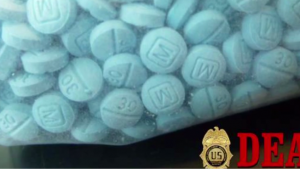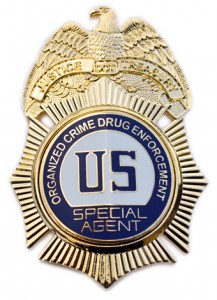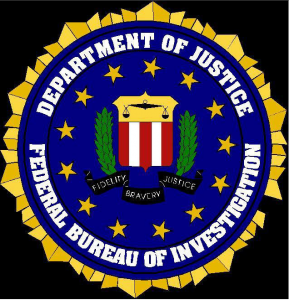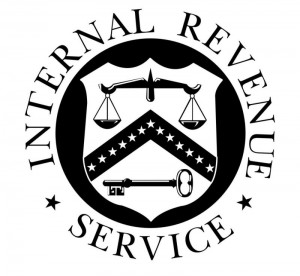WASHINGTON
 The Department of Justice, and it’s Joint Criminal Opioid and Darknet Enforcement (JCODE) team and international partners, announced Tuesday the results of Operation SpecTor.
The Department of Justice, and it’s Joint Criminal Opioid and Darknet Enforcement (JCODE) team and international partners, announced Tuesday the results of Operation SpecTor.
The Darknet Enforcement officers made 288 arrests – the most ever for any JCODE operation and nearly double that of the prior operation.
Law enforcement also conducted more seizures than any prior operation, including 117 firearms, 850 kilograms of drugs that, include 64 kilograms of fentanyl or fentanyl-laced narcotics, and $53.4 million in cash and virtual currencies, according to officials.
 Operation SpecTor was a coordinated international effort spanning three continents to disrupt fentanyl and opioid trafficking on the darknet, or dark web.
Operation SpecTor was a coordinated international effort spanning three continents to disrupt fentanyl and opioid trafficking on the darknet, or dark web.
The operation was conducted across the United States, Europe, and South America.
It resulted from the continued partnership between JCODE and foreign law enforcement against the illegal sale of drugs and other illicit goods and services on the darknet.
JCODE and Europol’s European Cybercrime Centre (EC3) continue to compile intelligence packages to identify entities of interest.
 These leads allow U.S. and international law enforcement agencies to identify darknet drug vendors and buyers, resulting in a series of coordinated but separate law enforcement investigations and the statistics announced today.
These leads allow U.S. and international law enforcement agencies to identify darknet drug vendors and buyers, resulting in a series of coordinated but separate law enforcement investigations and the statistics announced today.
This year’s law enforcement operation was accompanied by a public awareness campaign called Operation ProtecTor aimed to promote public safety and spread awareness of resources for those struggling with substance abuse who go to extreme lengths to obtain opioids.
JCODE has worked with every FBI field office in the country to facilitate outreach to households that have purchased individual amounts of opioids from the darknet.
 The interagency efforts aim to identify those who use anonymizing technologies to purchase illicit narcotics and direct them to available resources, officials stated.
The interagency efforts aim to identify those who use anonymizing technologies to purchase illicit narcotics and direct them to available resources, officials stated.
“The availability of dangerous substances like fentanyl on dark net marketplaces is helping to fuel the crisis that has claimed far too many American lives,” said FBI Director Christopher Wray. “That’s why we will continue to join forces with our law enforcement partners around the globe to attack this problem together. “
“The Sinaloa and Jalisco drug cartels, and the global networks they operate are killing Americans by sending fentanyl into the United States. Their associates distribute this fentanyl into communities across America by every means possible, including the dark web,” said DEA Administrator Anne Milgram. “The DEA is committed to shutting down the fentanyl supply chain from beginning to end, and we will relentlessly pursue the associates of these cartels wherever they hide, even in the dark corners of the internet.”
 “Our coalition of law enforcement authorities across three continents proves that we all do better when we work together,” said Executive Director Catherine De Bolle of Europol. “This operation sends a strong message to criminals on the dark web: international law enforcement has the means and the ability to identify and hold you accountable for your illegal activities, even on the dark web.”
“Our coalition of law enforcement authorities across three continents proves that we all do better when we work together,” said Executive Director Catherine De Bolle of Europol. “This operation sends a strong message to criminals on the dark web: international law enforcement has the means and the ability to identify and hold you accountable for your illegal activities, even on the dark web.”
Operation SpecTor resulted in over 100 federal operations and prosecutions, including:
- On Dec. 1, 2022, Anton Peck, 29, of Boca Raton, Florida, was sentenced to 16 years in prison for conspiring to possess with the intent to distribute controlled substances, including fentanyl, methamphetamine, and heroin. According to court documents, between May 2021 and May 2022, Peck distributed narcotics from various darknet markets using the vendor profile “Syntropy.” After the transactions were carried out using cryptocurrency, Peck and co-conspirators Kevin Fusco and Vincent Banner mailed parcels containing fentanyl, heroin, and methamphetamine to cities around the country using the U.S. Postal Service (USPS). Fusco, 35, of West Palm Beach, Florida, was sentenced to 11 years in prison for conspiring to distribute fentanyl, heroin, and methamphetamine. Banner, 31, of Boynton Beach, Florida, is scheduled to be sentenced on June 8 after pleading guilty to one count of conspiracy to possess with intent to distribute fentanyl, methamphetamine, and heroin. Law enforcement recovered kilogram quantities of fentanyl, cocaine, methamphetamine, and heroin from business and storage locations in West Palm Beach, Boca Raton, and New York City. Peck possessed a list of more than 6,000 customers living across the United States. The DEA, FBI, USPS Office of Inspector General (USPS-OIG), U.S. Postal Inspection Service (USPIS) and the Palm Beach County Sheriff’s Office investigated the case. The U.S. Attorney’s Office for the Southern District of Florida is prosecuting the case.
- On Nov. 18, 2022, a federal grand jury in Los Angeles returned an indictment charging Christopher Hampton, 36, of Cerritos, California, with heading an organization that obtained bulk fentanyl, operated labs in California that used high-speed pill presses to create fake pills containing fentanyl and methamphetamine, and sold millions of pills to thousands of customers on the darknet. Hampton was named in an 11-count indictment that charges him with various narcotics and weapons offenses that could result in a sentence of life in prison. According to court documents, he was active on at least nine darknet marketplaces where he typically used the moniker “Narco710.” Hampton allegedly sold nearly $2 million worth of narcotics on two of these darknet marketplaces alone. He was arrested on Nov. 2, 2022, at which time federal law enforcement executed search warrants that led to the discovery and seizure of 450 pounds of suspected narcotics; six pill press machines, some of which were capable of producing thousands of pills per hour; and illegal firearms that included assault rifles and a machine gun. Agents later located a storage unit linked to the drug conspiracy and seized over 80 pounds of pressed fentanyl pills, eight guns, and precursor materials to press additional pills. Hampton is scheduled to go on trial on July 25. The FBI JCODE and DEA HIDTA Tactical Diversion Squad investigated the case. Los Angeles-based Assistant United States Attorneys Ian Yanniello and James A. Santiago are prosecuting this case.
- On May 12, 2022, a federal grand jury in Sacramento returned a two-count indictment charging Holly Adams, 31, and Devlin Hosner, 33, of Indio, California, with conspiracy to distribute and possess with intent to distribute fentanyl and methamphetamine, and with conspiracy to launder money. According to court documents, Adams and Hosner operated the vendor accounts “igogrrawwr” and “its4real” on the darknet marketplaces ToRReZ and Darkode, respectively, through which they sold tens of thousands of counterfeit oxycodone pills containing fentanyl in exchange for cryptocurrency. Adams and Hosner shipped these fentanyl pills to buyers throughout the United States, using the USPS, UPS, and other means of delivery. During their conspiracy, Adams and Hosner finalized over 1,100 narcotics and other contraband transactions and received more than $800,000 in cryptocurrency. Federal law enforcement officers executed a search warrant at a hotel in Riverside county where Adams and Hosner were residing and recovered more than 10,000 counterfeit oxycodone pills as well as approximately 60 grams of methamphetamine.
All defendants are presumed innocent unless proven guilty.

